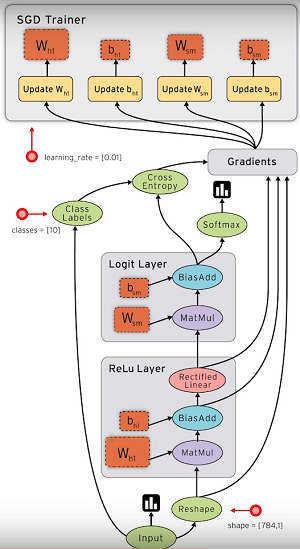News
Google Cloud Targets Machine Learning Developers
- By David Ramel
- March 24, 2016
At its GCP NEXT 2016 conference, the Google Cloud Platform team announced a new offering designed to mainstream the development of machine learning (ML) apps.
Developers can now sign up for a limited preview of Google Cloud Machine Learning, a managed platform that helps build ML models with all kinds of data coming in all sizes.
"Cloud Machine Learning will take machine learning mainstream, giving data scientists and developers a way to build a new class of intelligent applications," the company said in a blog post yesterday. "It provides access to the same technologies that power Google Now, Google Photos and voice recognition in Google Search as easy to use REST APIs."
Google already has a portfolio of pre-trained ML models, and has added a new one, the Google Cloud Speech API, joining the likes of the Translate API and the Vision API.
Developers wanting to create their own ML models can use the company's Cloud Datalab and the TensorFlow framework (open sourced last year), which leverages GPU computing power along with CPU resources. Such models become immediately available for use on the company's global prediction platform, which can service thousands of users and terabytes of data.
Portable models can be built with the TensorFlow SDK and trained locally on sample data sources, and these can then be trained at scale on the on the GCP.
 [Click on image for larger view.]
TensorFlow Uses Data Flow Graphs (source: Google)
[Click on image for larger view.]
TensorFlow Uses Data Flow Graphs (source: Google)
"You can easily build predictive analytics models using your own training data," the company said. "For example, a financial services app that predicts values using regression models, or a classification service for images. Cloud Machine Learning will take care of everything from data ingestion through to prediction."
Along with the Cloud Datalab, the new platform is integrated with other Google services such as Google Cloud Dataflow, Google BigQuery, Google Cloud Dataproc, Google Cloud Storage.
Google also announced updates to some of those services. For example, it added capabilities to its managed Apache Hadoop and Apache Spark service, Cloud Dataproc, which was unveiled last fall. Those include new functionality for BigQuery -- a managed analytics data warehouse -- such as long-term storage to reduce storage costs, a new Capacitor storage engine to speed up queries, and more.
"At Google, researchers collaborate closely with product teams, applying the latest advances in ML to existing products and services -- such as speech recognition in the Google app, search in Google Photos and the Smart Reply feature in Inbox by Gmail -- in order to make them more useful," the company's research team said in its own blog post yesterday. "A growing number of Google products are using TensorFlow, our open source ML system, to tackle ML challenges and we would like to enable others do the same."
The new ML offering might be seen as a catch-up play for Google, competing with the already established offerings from cloud rivals such as Microsoft Azure's ML offering and Amazon Web Services' counterpart.
"Finally, Google is taking the enterprise battle for the cloud seriously and for sure it is not too late to complete," IDC analyst told ADTmag. "The cloud wars are still relatively nascent, and while a couple of other players like AWS and Azure have been more enterprise focused and have garnered early leadership, the situation is fluid, and it is definitely early days. We are beginning to see the GCP kick into hyper-drive on multiple fronts and no doubt this is a function of the new focus that Diane Greene is bringing to the platform.
"The biggest indications of seriousness are the datacenter and region expansion plans, but also the focus on maturing platform technologies like node.js, Kubernetes, ML, DataFlow, and many new capabilities being added to support developers who are demanding DevOps capabilities embedded in every feature. The battle continues on two major dimensions, one is datacenter reach and scale, and the other is PaaS functional richness."
Developers can sign up for the limited preview here.
About the Author
David Ramel is an editor and writer at Converge 360.